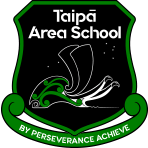New Entrant to Year 6
We have 3 classes in the primary area of the school. New Entrant to Year 2, Year 3 and 4, and Year 5 and 6.
All Primary Years classes follow the New Zealand National Curriculum. We are developing an approach around “Inquiry” where students have the opportunity to follow their interest around the inquiry focus. Students follow the teaching and learning model – Learn, Create, Share. Where possible the learning includes our local environment then moving to a global focus.
Students are grouped in reading, writing and mathematics to enable them to achieve success at their level. Students will bring home reading, spelling and basic facts learning homework. Teachers have their teaching and learning visible via their websites.
Where possible we work together and offer various opportunities where the students work together as a whole primary team. We want students to have ownership over their learning, being aware of what they have achieved and what their next steps are. As the students move through the school they are scaffolded in and are able to take more responsibility for their learning by communicating their successes and next learning steps.
We are lucky to offer many other Educational opportunities. We have a very active Enviro Group who achieved Silver Enviro School Status and are working towards their gold award. We are fully involved in Sport Northland tournaments including the Eastern Zone soccer, netball, ki-o-rahi and interschool cross country.
The following information is to answer any questions that often come from parents when preparing their child for school. Children come to us with wide and diverse talents and at varying levels of maturity. There are however simple tasks which you can help your child to complete independently, making the transition to school easier for your child
- Doing up buttons and shoelaces. Putting socks on.
- Being able to put on and take off jerseys and sweatshirts.
- Being responsible for their own belongings. i.e. putting clothes away when they are taken off, not leaving them on the floor.
- Being aware of the need to and being able to blow their own nose.
- Being able to open lunch containers / packages etc. muesli bars, chippies etc
- Trained to flush toilets and wash hands
Preparing your child to print
Your child is experimenting with a variety of media in play, drawing and painting. All this helps to develop the fine muscle control needed for printing. Encourage drawing, cutting, construction, jigsaw, threading and other activities to develop this fine motor coordination. At school we print in lower case letters so it helps if this is the style shown at home. Encourage your child to hold a pencil correctly.
- If your child wishes to write at home encourage this style.
- Jonno – not JONNO
- Encourage your children to form circles anticlockwise from a 1 o‘clock position to help with the correct formation of letters.
Your child needs a vocabulary for maths, to be able to explain what is happening and why. Much of the Maths programme is activity and language orientated. You can provide experiences and opportunities to extend their understandings.
- Playing with blocks and cars provides opportunities: to compare – longer, shorter, bigger, smaller to match – the same size – the same shape or – not the same shape
- to develop directional language – under here – over the top – behind this one – beside
- Experimenting with water develops awareness of volume and associated language.
- – full, half, less, more, the same amount etc
Maths is fun, enjoy it with your child.
Parents who read to their children regularly and show an interest in books themselves are providing a wonderful environment for children to have success in reading.
Some ideas to help:
- Listen to your child read every day
- let them look at the pictures as they read,
- encourage your child to try out those tricky words first
- model how the reading should sound with lots of expression and get them to copy you
- Read to them regularly
- Be enthusiastic about the story or choose another
- ask questions about the story – what do you think will happen? – what would you do?
